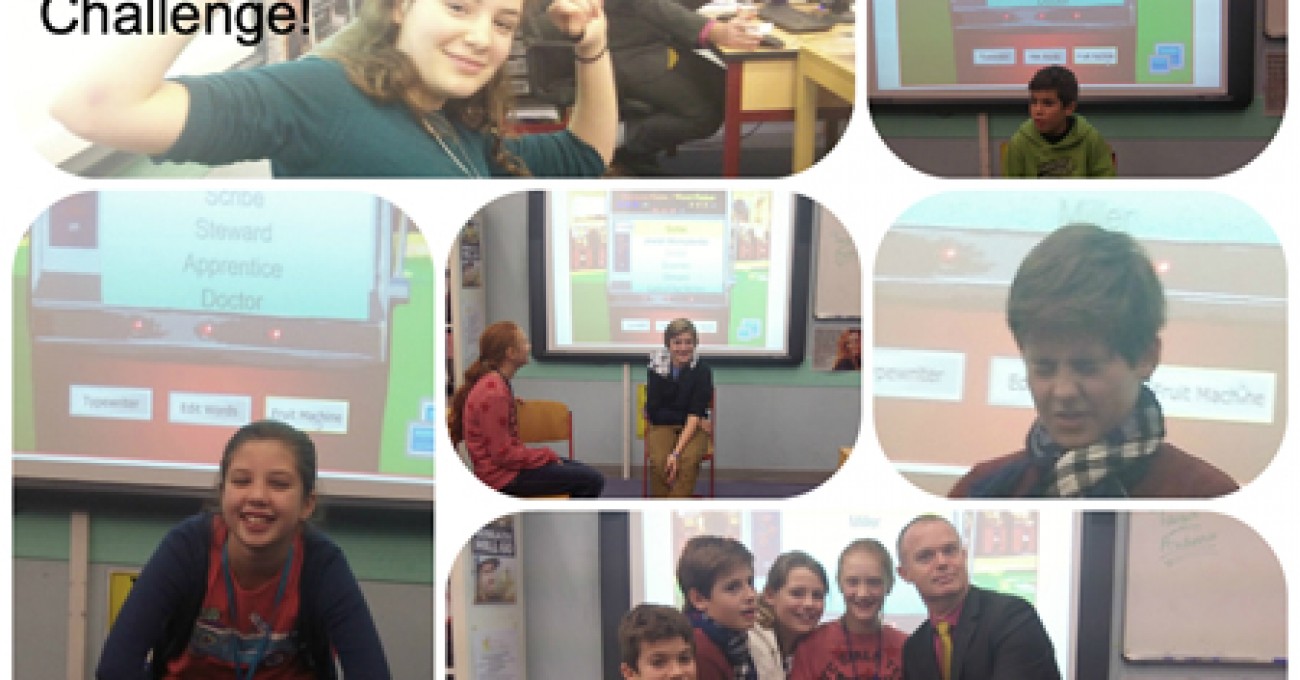Overview: This is a simple game which is a great way of rounding off a unit and revising important dates, concepts and people. It is particularly effective just before students have to produce some written work making effective use of key terms.
Instructions
Put students into teams of 4 or 5.
The first member of the first team sits in the “hotseat” with their back to the interactive whiteboard.
The teacher uses the “Random Word Picker” at www.classtools.net to choose and display a word at random on the interactive whiteboard.
The rest of the team have 30 seconds to get their teammate to guess what word is on the screen behind them by giving a definition.
A correct guess gets points for the team based on how many seconds are left on the clock (e.g. 25 points if they get it after 5 seconds).
The teacher should then provide a short outline of the significance of the term, and all students should make a note of it.
Repeat for the other teams, and carry on for as many rounds as you like! A prize can be given to the highest-scoring team at the end of the game.
Case study
The photograph shows Year 7 historians playing the game as part of their studies on “Was life good or bad in the Middle Ages?”.
After playing the Medieval Time Machine game, I gave them a list of the main jobs of people that they met in the simulation (scribe, baliff, apprentice, moneylender…).
Each group had five minutes to work together to decide what each job entailed.
They were then told that points would only be won by teams which could not only define the job, but could also explain why it should be regarded as evidence of ‘bad’ or ‘good’ conditions. They were then given a further five minutes to consider which jobs fitted which category, and why.
At the end of this period, each student had a list of characters, a brief description of each, and also an inference about what they suggest about the quality of life in the Middle Ages. After we played the game, this then provided useful raw material for either a ‘Travel Brochure’ for a holiday to the Middle Ages (the task for one half of the class focusing on ‘good’ elements) or a complaint letter about how the holiday turned into a disaster (the task for the other students focusing on the ‘bad’ elements).



